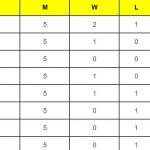A German court on Tuesday found a prominent far-right politician from the Alternative for Germany party guilty of using a banned Nazi slogan during a campaign speech in 2021.
A panel of four judges fined the politician, Björn Höcke, head of the AfD in the eastern state of Thuringia, 13,000 euros, roughly $14,000.
The trial, which Mr. Höcke’s defense tried to portray as a battle for free political speech, was watched closely because the AfD stands to make significant electoral gains in state elections this year and because of Mr. Höcke’s well-documented extremist views.
Mr. Höcke seemed to deflate when he heard the verdict.
During the trial, which began last month in the city of Halle, Mr. Höcke admitted to using the phrase “Everything for Germany” but claimed that he had not known about its Nazi origin and compared it to the American slogan “America first.”
But the fact that Mr. Höcke was previously a high school history teacher and that his party has repeatedly run into legal trouble for using the exact same phrase undermined his argument, leading to the court’s ruling.
Using Nazi phrases, gestures, symbols or uniforms is against the law in Germany and is punishable by up to three years in prison. The slogan was used by the S.A. Stormtroopers, the paramilitary wing of the Nazi party, which engraved it on their standard-issue knives.
The prosecution argued that Mr. Höcke’s use of the term was part of a strategy of introducing ever more extreme language into the national discourse.
Johannes Hillje, who studies communication of populist parties, says the phrase is especially well suited for changing the acceptability of extremist language because, stripped of historical context, it seems perfectly harmless.
“It’s important that the court confirmed legal limits in the face of Björn Höcke’s strategy of shifting the discourse,” said Mr. Hillje after the verdict was announced.
The verdict comes months before an election for the Thuringian legislature that could, for the first time since the end of the Nazi regime in 1945, put a far-right party in control of a state government. As the party’s leader in that state, Mr. Höcke could become the equivalent of a state governor.
But despite its popularity with voters, the AfD is dealing with a number setbacks that began over revelations in January that party functionaries had participated in a secret meeting with other far-right activists to discuss deportations of non-Germans.
In a separate court decision on Monday, an administrative court in Münster, 200 miles to the west, dismissed a lawsuit brought by the AfD that sought to prohibit domestic intelligence from classifying the party as “suspected extremist.” The classification gives the intelligence agency, known by its German acronym BfV, special surveillance powers under German laws.
Last month, the police arrested an aide to Maximilian Krah, the party’s top candidate for the upcoming European Union parliamentary elections, on the suspicion that he worked as a Chinese intelligence agent. While Mr. Krah has distanced himself from the aide, the investigation into the affair is continuing.
On Tuesday evening, the judge in Mr. Höcke’s case, Jan Stengel, read the verdict after Mr. Höcke and his three defense lawyers delivered final statements. Mr. Höcke’s defense argued that the slogan was widely used and predated the Nazi era; it also argued that freedom of speech was more important than the prohibition of certain phrases.
Mr. Höcke directed an unusually passionate rebuke at the public prosecutor who had presented the case, saying he was hurt that the prosecution had not sought to dismiss the case after hearing his explanation.
“Do we want to ban the German language because the Nazis also spoke German?” said Mr. Höcke. “How far will this go?”
At one point in his speech, Judge Stengel interrupted Mr. Höcke to remind him that he was not holding a political rally.
In delivering its verdict, the court made clear that it did not agree with Mr. Höcke’s view of free speech, even if Judge Stengel said a prison sentence was disproportionate for someone who did not have a criminal record. The judge also said he believed Mr. Höcke had used the phrase on purpose.
“We have the feeling that the mantle of freedom of expression is being severely overused,” Judge Stengel said.
Mr. Höcke faces two other criminal cases over speech that are not yet scheduled. He has a week to appeal Tuesday’s verdict before it becomes binding.






